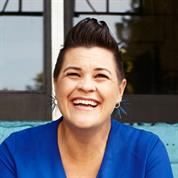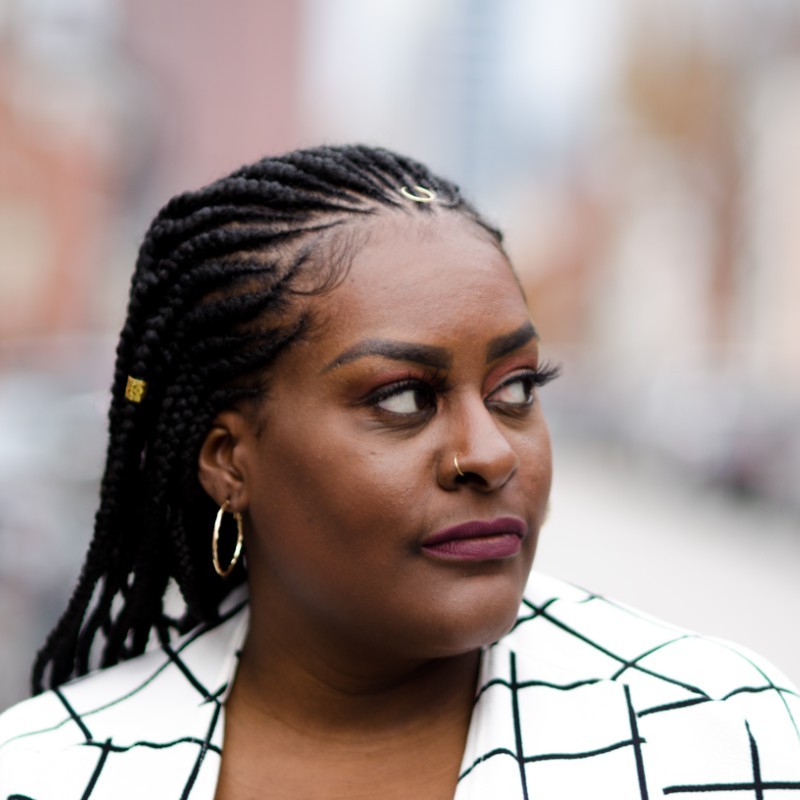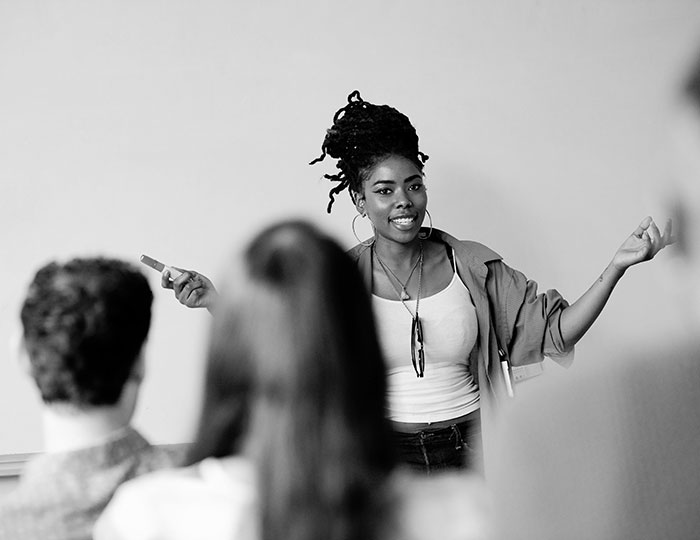How can we as individuals, and organisations like the RSA, which have had a relationship with colonialism and slavery, work now to disrupt and dismantle racism?
Melissa Bird, PhD FRSA and Crystal Lynese Walker argue that when we remain silent, we become complicit in maintaining the structures of white supremacy. By bringing awareness of our own past and belief systems to the work of disrupting racism, we can move forward as individuals and organisations.

The original image may be accessed via UnSplash and is the work of James Eades
Learning to face our histories in total truth is the cornerstone of disruption. Disrupting is all about upheaving, removing, cleansing, or rebuilding a new infrastructure, work that cannot be accomplished without acknowledging and uncovering the truth.
Those uncomfortable truths that seem like distant memories and horror stories are residing in our present and are evident in our behaviors, the systems we build, and the rules we create. As disruptors and leaders, it is important for us to bring awareness, test our knowledge, and strategically disrupt and dismantle racism and white supremacy.
We are not living in a society that is more sensitive, we are living in a world where people who have previously not been able to use their voices, now have platforms. We are living in a time of accountability where thanks to social media, we can witness gross displays of racism, which provide us with opportunities to change how we respond. Calling out racist behaviors, systems, or beliefs in a way that only modern times have been able to allow.
The information that we consume and the ability to share our experiences all mirror the truths we have tried to hide and run from. As we find ourselves grappling with a 24-hour news cycle that stokes the fires of outwardly racist language and microaggressions, leaders in the RSA are presented with a unique and timely opportunity to engage in anti-racist work in a new light.
As Fellows, we have been charged with the task of “resolving the challenges of our time.” This means disrupting the narrative that someone else will take care of this for us, dismantling the idea that our fear is more powerful than our opportunity to make a change, and discovering how to create a world that is no longer complicit in facilitating racist ideology.
To model this critical work, we, along with Bay Area Co-Ambassador Jaylena D Lomenech, MBA FRSA, facilitated Dismantling Racism: From History to Disruption to Representation in October 2020. During this workshop we gave concrete examples that Fellows could take with them into their communities to enact change. As Fellows, we have an opportunity to learn how we can become a critical component of dismantling racist structures and ideologies while learning how we can become a shepherd of a beloved community that recognizes that we are all interconnected in the work of deconstructing racism.
We challenge you to look within and do the work to dismantle and disrupt the patterns of white supremacy in your own communities. Take the time to read and learn from the works of people of color, recognize how your own belief systems may be rooted in racism and change your behavior accordingly.
Melissa Bird, PhD FRSA is the CEO of Natural Born Rebel, and Owner of The Mermaid’s Garden. A social worker by training, Dr. Bird is a passionate feminist life coach, writer, educator, and public speaker. She has been an RSA Fellow since 2018.
Prof. Crystal L. Walker is an Assistant Professor of Communication and Diversity Officer at Howard Community College (MD). An organizational strategist and DEI consultant, Prof. Walker is also the Founder of Crystal Clear Plan.
Related articles
-
Alliances to face a crisis
Comment
Alexa Clay Jamie Cooke Philipa Duthie
The Covid-19 pandemic has encouraged Fellows to get together and take action.
-
How to be an anti-racist educator
Blog
Laura Partridge
Reflecting, thinking long-term, and fixing what’s wrong with our schools.
-
Supporting a more inclusive education system in London
Blog
Mehak Tejani
How can we solve the challenge of reducing school exclusions?





Join the discussion
Comments
Please login to post a comment or reply
Don't have an account? Click here to register.
Really interesting and interested - and so important still, as you say (I am UK based). I looked for the Oct 2020 workshop report/recording and could find nothing. I certainly would like to know more about the ' concrete examples that Fellows could take with them into their communities to enact change'. Has there been any material published?